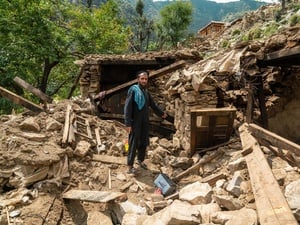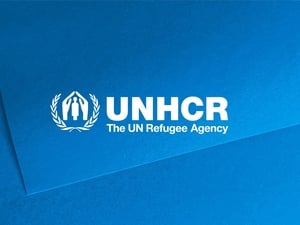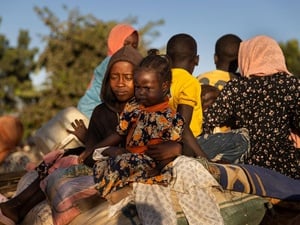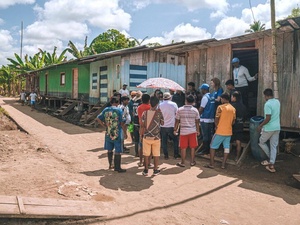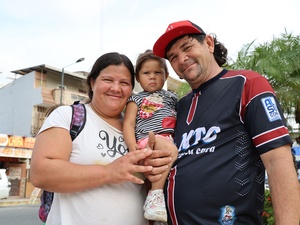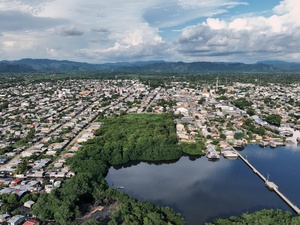Large-scale refugee registration project starts in Ecuador
Large-scale refugee registration project starts in Ecuador
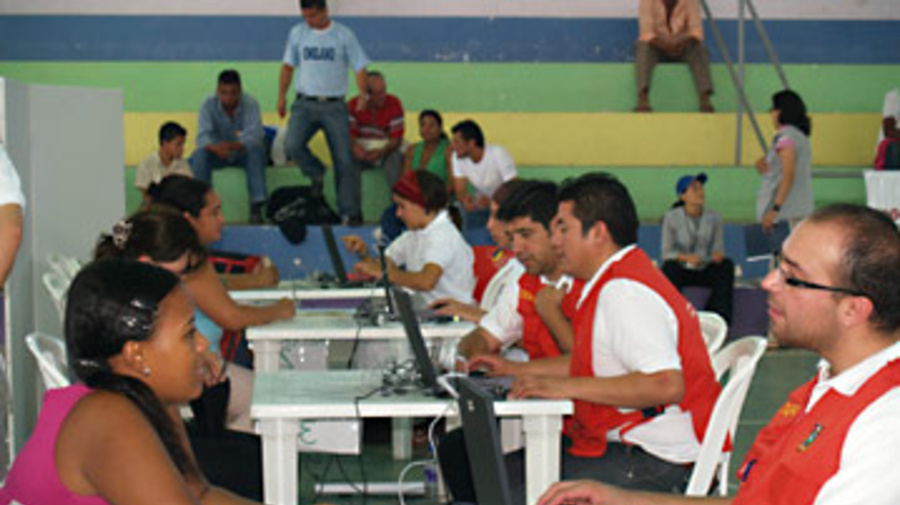
Refugees take part in the Enhanced Registration Project, which got under way this week in Ecuador.
MUISNE, Ecuador, March 27 (UNHCR) - A convoy carrying dozens of UNHCR and government officials descended on the tranquil Ecuadorean island of Muisne earlier this week to launch a landmark refugee registration project.
The mobile team of 50 civil servants backed by UNHCR specialists kicked off the exercise on Monday and plan to register and document at least 50,000 Colombian refugees in northern Ecuador under the Enhanced Registration Project.
The project, unprecedented in Latin America, will continue for at least a year and cover every province along Ecuador's border with Colombia. UNHCR is providing technical and logistical help, as well as funding 80 percent of the US$2 million budget with the help of donors.
Ecuador is home to 22,000 recognized refugees, mostly Colombians who have fled conflict across the border in their homeland. However, the government and UNHCR estimate that the real number of refugees could be as high as 135,000.
The importance of the Enhanced Registration Project is twofold: it shortens the waiting period for a government decision on asylum claims from several months to just a few hours; and it takes the asylum process to the field, where many refugees have been unable to access asylum systems in urban areas because they didn't have the resources or because they feared being detained.
On the first day of registration in Muisne, some Colombians said they were afraid that the regularization process could lead to deportations. Nevertheless, more than 200 people received refugee visas in the first three days and were taught about their rights and obligations. As the mobile teams travel in Esmeraldas province over the next few weeks, the numbers are expected to grow as the presence of Colombians is more numerous near the border.
Those carrying out the project were recently hired and trained by the Ecuadorean government and UNHCR. In total, the project required the purchase of more than 40 computers, electric generators, nine vehicles, visibility materials and a implementation of a communications campaign, all procured by UNHCR.
Yolanda, a 37-year-old Colombian, was overwhelmed on receiving her refugee visa in Muisne. "Since we came to Ecuador, we have been working on a farm in exchange for food and a place to sleep. All this time I have felt as if I was in jail, afraid of leaving the house to buy food or to go to parents' meetings at my daughter's school," she said, adding that she now hopes to get a job and bring her oldest daughter from Colombia.
Andres Ramirez, UNHCR's Enhanced Registration Coordinator, commended the transparency and support of the government at all levels. "It is a privilege for UNHCR to support this ground-breaking effort that will change thousands of lives," he said.
By Xavier Orellana in Muisne, Ecuador




